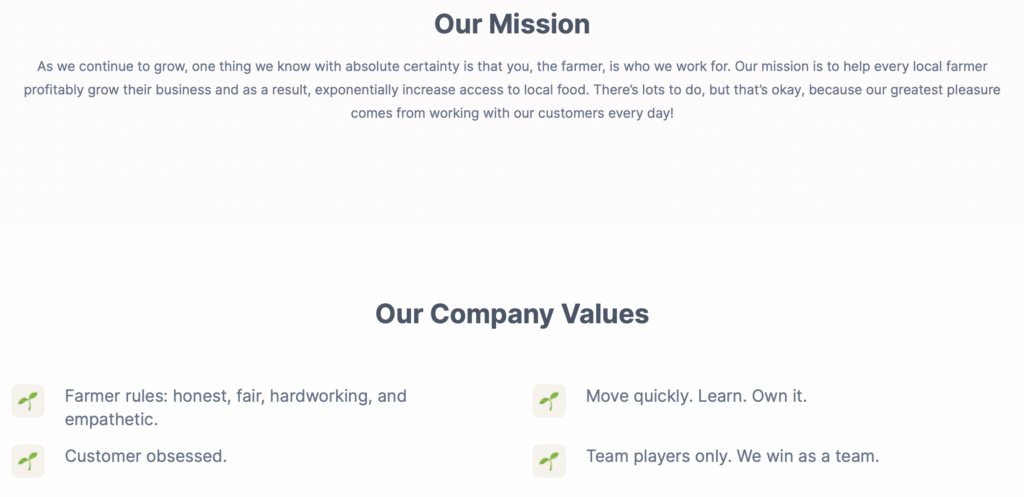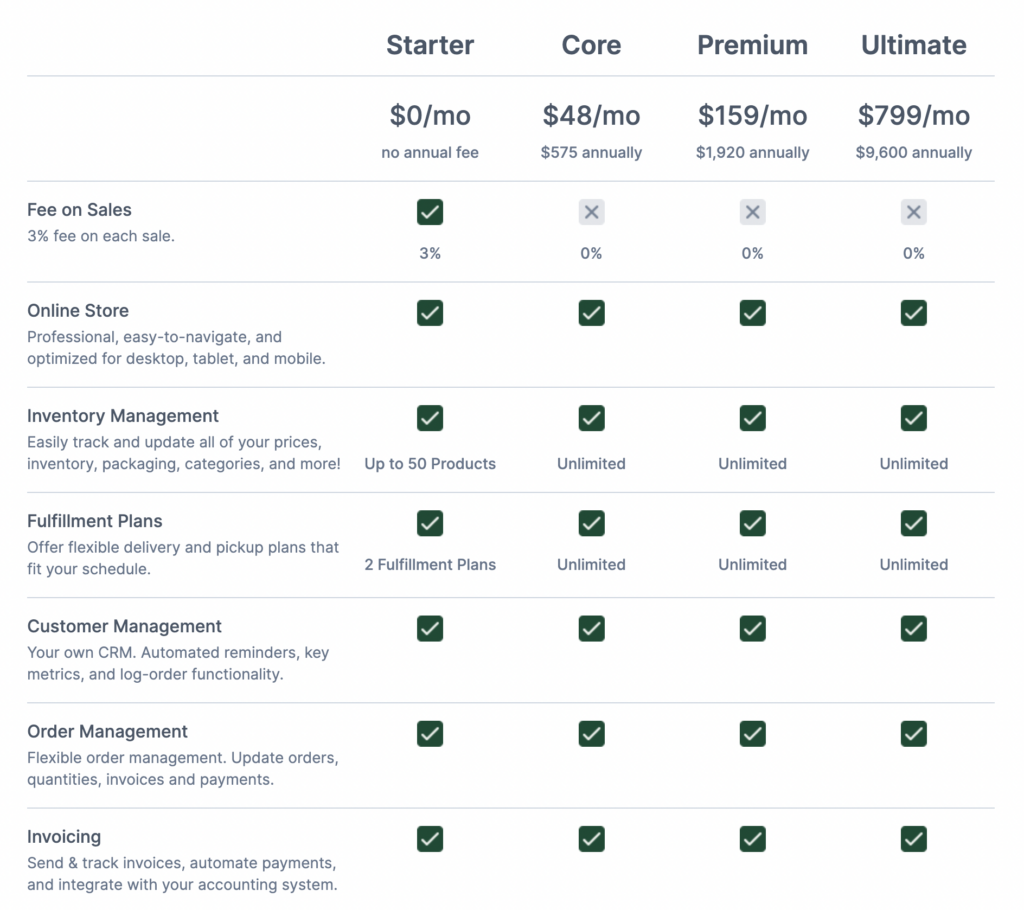Local Line: farm to table with a click

Helping farmers ship local with AI.
Shopping at local farmers markets is a great way to buy local and reduce carbon emissions. But farmers markets are only open on certain days and a small local farm can only be at one market at a time. This means that produce might be less fresh and farmers are constrained.
Intro
Local Line launched in 2015 to help connect small local farmers to chefs in the area. Over time, the product has expanded to help farmers, butchers, breweries, farmers markets and food hubs sell their products online, allowing customers to preorder products like honey, artisanal cheese, and produce. Local Line has been described as a Shopify for farmers.

Local Line became especially important in the early days of the COVID-19 pandemic, many restaurants and farmers markets were shut down. Local Line became a lifeline for local farmers to sell their produce and continue making an income, seeing enrolments rise nine times that of pre-COVID times. Local Line now operates in 10 Canadian provinces and 49 U.S. states.
Local Line’s core features are: order and inventory management, online payments, customer management, and giving farmers a branded online store. Local Line also aggregates this data to help its customers glean insight into best-selling products, how to better engage customers, and make sure consumers can get the products they want.
Before AI, Local Line created value by serving as a platform and one stop shop for farmers to sell to their customers. It helped farmers scale their businesses and enhanced their business knowledge by offering tailored advice, manuals, and resources. These resources covered the gamut of social media marketing to shipping cost and ROI calculators.
Local Line’s AI solution for the delivery challenge
Local Line started off as a matchmaking service for farmers and restaurants. When the company was getting started, the CEO Cole Jones transported potatoes in the back of a mini-van. With all the farmers, flower growers and various local small businesses, Local Line wanted to help the businesses get fresh goods into customers’ hands quicker. Customers want 24-hour turnarounds for their orders but that is difficult to coordinate to help optimize deliveries.
In 2019, Local Line began experimenting with “AI-informed algorithms to forecast shipping dates well into the future, enabling better planning and greater efficiency.” In turn, this will reduce transport costs of goods for farmers.
With the data that they had from existing purchases, Local linen could accurately predict over 90% of how much product will be sold from where and at what time of the year. This allowed the company to optimize distribution routes and book delivery services well ahead of time and at a lower cost. In effect, Local Line is offering a “ride share program for local food coupled with demand prediction.”
Local Line’s solution allows farmers and markets to focus on what they do best, instead of trying to optimize deliveries and reducing costs. This also creates value for consumers by allowing them to make last minute orders and have produce that is fresher.
Beyond this, better anticipating demand and optimizing delivery routes has enabled businesses to offer more flexibility in what customers can order – they can customize weekly food box deliveries for example because Local Line has already anticipated this need and has adjusted the delivery service and routes for this need.
Through AI, Local Line enabled farmers to better anticipate demand for their products and help them ship products faster consumers – working towards their main mission of helping local farmers profitably grow their businesses.
Having created so much value for farmers and consumers, how does Local Line capture some of this value?

Through the common SaaS (software as a service) model, Local Line offers different levels of services at different price points. Noticeably, the free level offers many core features for free to farmers. Not knowing the margins on the goods being sold on the platform, it would be interesting to know whether or not Local Line might be able to capture more value if they were to charge some commission on the Core and Premium products.
Future opportunities
With the amount of data Local Line has amassed, there may also be an opportunity to use artificial intelligence to help farmers better anticipate changing consumer trends. Beyond this, it would also be interesting to see Local Line use the data they have amassed to help businesses identify personalized business opportunities – for example for a flower farmers to also package their products with a local chocolatier for gift baskets.
Local Line has also recently launched integrations with various technology solutions such as social media, MailChimp – an email marketing software, Wave – an accounting software, and Google Calendar. By identifying the key integrations and the needs that customers have in those software, Local Line may also vertically integrate the key features into their product and capture more value in the future.
With fresh produce being difficult to manage logistically, if Local Lines solves this problem through a proprietary algorithm, could they also pivot into other markets and license this program to help other small businesses optimize their shipping challenges?
With rising demand for locally sourced foods, need for technology-enabled solutions to help farmers scale, lack of competitors in the market, and now the investment into artificial intelligence, Local Lines is primed to become a dominant player in its niche.


